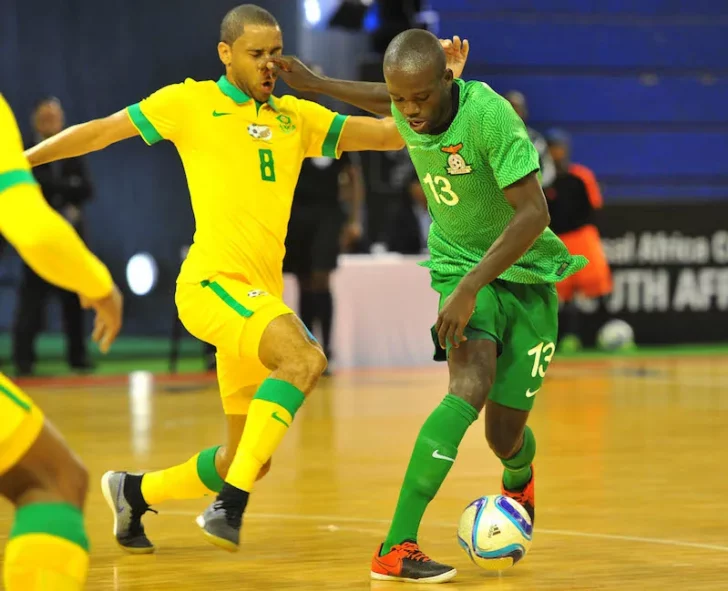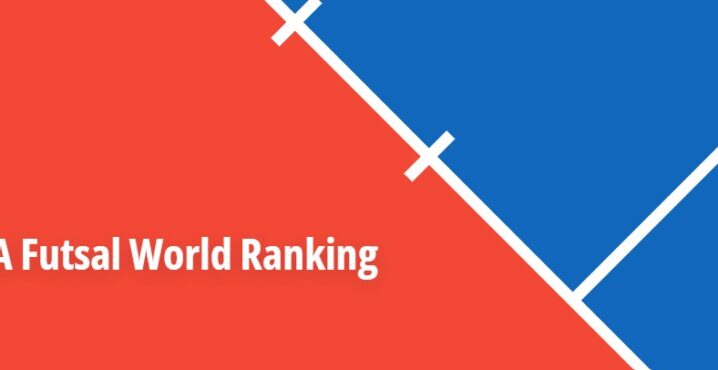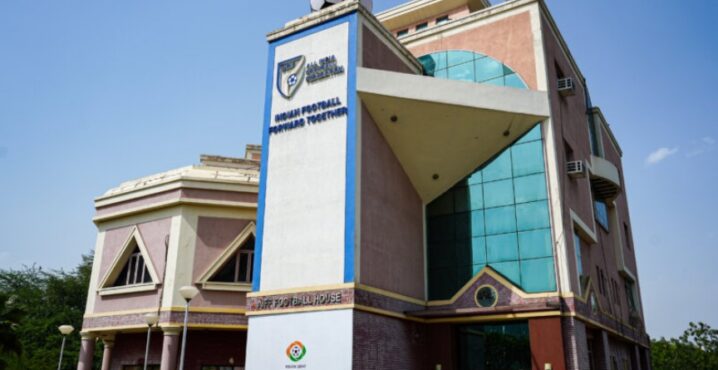Estimated reading time:13 minutes, 8 seconds
The Confederation of African Football (CAF) is gearing up for the Futsal Africa Cup of Nations 2024 qualifiers, and our sources tell us the draw is set to take place in the last week of December 2023. The exact date and time of the drawing of lots to determine the schedule for these qualifiers will be communicated shortly. The original host for the competition, Mozambique, has withdrawn from hosting duties. As of now, discussions about the potential replacement host are mere rumours. Due to the speculative nature of this information, we refrain from disclosing any names that are currently under consideration.
(Main picture source: CAF)
List of Participating Countries:
The participating nations for the Futsal Africa Cup of Nations 2024 qualifiers have been finalized, with 12 countries set to compete for a chance to secure a spot in the prestigious tournament. The engaged associations, received through the online system CMS by the August 20, 2023 deadline, include:
- Algeria
- Angola
- Cameroon
- Cote D’Ivoire (Ivory Coast)
- Egypt
- Ghana
- Libya
- Morocco
- Namibia
- Tanzania
- Zambia
- Mozambique
The inclusion of these diverse nations showcases the growing popularity and development of futsal across the African continent.
Additional Information on Engaged Countries (Up to 2023):
Algeria
Algeria made its inaugural appearance in the FIFA Futsal World Cup during the 1989 edition, where the national team was placed in Group A alongside the Netherlands, Paraguay, and Denmark. Unfortunately, Algeria concluded the group stage at the bottom. Following this participation, the national futsal team did not engage in World Cup qualifiers again until 2020, facing Libya and suffering a 6-12 defeat.
Throughout the years, Algeria’s involvement in futsal was sporadic, with intermittent participation in notable tournaments. Notably, the team competed in the Arab Futsal Cup in 1998, 2005, 2007, 2008, 2021, 2022, and 2023, showcasing its intermittent engagement with regional competitions. Additionally, Algeria took part in the North African Futsal Cup in 2010, further contributing to its futsal legacy on the African continent. In 2023, Algeria showcased an outstanding performance in the Arab Futsal Cup, advancing to the semi-finals. The national team secured the second position in Group A, alongside group winners Libya, Saudi Arabia, and Tajikistan. Notably, Algeria delivered an impressive victory in the quarter-finals, overcoming formidable opponents with a 2-0 win against Iraq. Despite their commendable journey, Algeria faced a closely contested match in the semi-finals, ultimately losing to Kuwait, 3-2. Buoyed by their stellar performance in the Arab Futsal Cup, Algeria enters the Futsal Africa Cup of Nations 2024 qualifiers with newfound confidence. The team is set on a historic goal—to secure a spot in the World Cup for the first time since their inaugural appearance in 1989. Determined and motivated, Algeria aims to build on their recent success and make a lasting mark in the upcoming qualifiers.
Angola
In a historic achievement in 2020, Angola secured qualification for the 2021 FIFA Futsal World Cup. Placed in a formidable group alongside Spain, Paraguay, and Japan—deemed the “group of death”—Angola, despite finishing at the bottom, etched its presence in the competition. The team delivered noteworthy performances against formidable opponents, leaving an indelible impression on fans worldwide.
Futsal stands as Angola’s most beloved recreational sport, weaving a rich tapestry of enthusiasm and passion within the nation. The 2020 World Cup qualification not only showcased the team’s resilience but also solidified futsal’s significance in the hearts of Angolan sports enthusiasts.
Cameroon
Cameroon entered the Futsal African Cup of Nations arena in 2008, mirroring Algeria’s intermittent engagement in the competition. Notably, the Cameroonian team did not partake in the 1996 and 2000 editions, faced non-qualification in 2004, withdrew from the competition in 2011, and encountered qualification challenges in both 2016 and 2020. As the anticipation for this year’s draw builds, enthusiasts hold their breath, hoping that Cameroon remains steadfast in their commitment and does not withdraw from participation, adding a layer of uncertainty and eagerness to the upcoming tournament.
Cote D’Ivoire (Ivory Coast)
In April, our African sources reported the launch of a university competition called U-Ligue Pro in the Ivory Coast (Côte d’Ivoire), a country where futsal had not received much attention since the qualifying rounds of the 2016 Futsal Africa Cup of Nations. During those qualifications, Côte d’Ivoire faced Morocco and suffered defeats in both matches, with scores of 2-7 and 0-5.
Between April and June of this year, the U-Ligue Pro took place at Cscticao, the Ivorian-Korean Center for Sports, Culture, and ICT Alassane Ouattara. The venue has a capacity of 1,200 seats. Intrigued to learn more, we visited their website at https://u-liguepro.com/ and their Facebook page at https://www.facebook.com/ULIGPRO.
To our great pleasure, we discovered that the competition lived up to its professional name. Offering a flawlessly organized, promoted, and executed event. We closely followed the competition from start to finish. We congratulate the organizers for their exceptional efforts. Impressed, Futsal Focus contacted Ben Koné, the founder of the competition, to learn more about futsal in Côte d’Ivoire and the U-Ligue Pro. You can read our interview with Ben via this link: https://www.futsalfocus.net/exciting-developments-african-futsal-u-ligue-pro-representing-futsal-ivory-coast/
The inclusion of the country in the draw came as a delightful surprise for Futsal Focus, underscoring the positive impact of the U-Ligue competition. The unexpected participation serves as a testament to the competition’s influence and bodes well for its continuation next year. The upcoming qualifiers will provide an intriguing platform to gauge the performance of the national team, adding an element of anticipation to see how they fare on this international stage.
Egypt
Egypt boasts a rich history in futsal, having clinched the title of Africa Futsal Cup of Nations champions in 1996, 2000, and 2004. The team displayed consistent prowess by securing runner-up positions in 2008, 2016, and 2020. Their journey in the FIFA Futsal World Cup began in 1996, where they exited the competition in the initial round. Subsequent years saw progression, reaching round 2 in 2000, round 1 in 2004 and 2008, the last 16 in 2012, the Quarter-Finals in 2016, and experiencing a group stage exit in 2021. The dynamic trajectory of Egypt’s futsal journey underscores the nation’s enduring commitment to the sport at the continental and global levels.
Ghana
Ghana’s most recent involvement in the African Futsal Cup of Nations dates back to 1996 when the nation secured a commendable runner-up position, narrowly trailing behind Egypt. Despite this achievement, Ghana made the unexpected decision to suspend its futsal programme, leading to an absence from futsal competitions since then. Additionally, the nation opted out of the competition in 2011. As the anticipation for the upcoming tournament builds, there is a collective hope that Ghana will not repeat history and will actively participate in this edition of the African Futsal Cup of Nations. However, 2023 marked a significant turning point for Futsal in Ghana. After nearly three decades of being in a state of limbo, the Ghana Football Association officially introduced the Ghana Futsal Premier League, which may have encouraged the Association to relaunch their national team. This initiative carries the promise of reviving the excitement and glory of the sport within the country. To delve deeper into the details of this newfound focus on futsal in Ghana, Futsal Focus had the opportunity to converse with Nathaniel Markwei, the Chairman of the Ghana Football Association Futsal Committee. For an in-depth exploration of this new futsal project in Ghana, you can access the interview via the following link: https://www.futsalfocus.net/discussing-new-futsal-project-ghana-nathaniel-markwei/
Libya
Libya boasts a rich futsal culture that traces back to 1998, marking their inaugural participation in the Arab Futsal Cup. This initiation sparked a series of successes, with a notable third-place finish in 1998, a fourth-place achievement in 2005, and consecutive championships in 2007 and 2008. The triumphs extended to the North African Futsal Cup, where Libya clinched victories in 2005, 2009, and 2010. Additionally, they secured a second-place position in the Mediterranean Futsal Cup in the same year.
The pinnacle of Libya’s futsal journey occurred in 2008 when they entered the Africa Futsal Cup of Nations and made history by not only winning the competition but also earning qualification for their sole FIFA Futsal World Cup appearance that same year. Despite facing a formidable group including Spain, Iran, the Czech Republic, and Uruguay, Libya left an indelible mark on the global stage.
The aftermath of the political upheaval in 2011, marked by Gaddafi’s removal from power, has thrust Libya into a prolonged period of instability. Unfortunately, this turbulent period has taken its toll on all sports and the national futsal team, leading to a decline in their performance levels. Despite these challenges, the enduring futsal legacy of the nation stands as a testament to the resilience and skill of its players. This legacy becomes a beacon of hope, suggesting the potential for a resurgence in the future when stability is restored.
Morocco
Morocco stands as the current powerhouse of African Futsal, earning the nickname Ousoud Al Atlas, which translates to Lions of the Atlas. The team has significantly asserted its dominance, securing victories in 2 Africa Futsal Cup of Nations, 3 Arab Futsal Cups, and 1 Futsal Confederations Cup. Their prowess extends to the global stage with three World Cup qualifications, making their debut appearance in 2012.
Remarkably, Morocco’s most impressive World Cup campaign unfolded in 2021. In the competition they advanced to the Quarter-finals, marking a historic achievement for the team, highlighted by an impressive performance against Brazil, where they narrowly lost 1-0. The Lions of the Atlas continue to demonstrate their strength, making them a formidable force in the world of futsal. The national team is poised as the favorites to clinch victory in the 2024 Africa Futsal Cup of Nations.
Namibia
In 2021, Namibia, without a national futsal team previously, witnessed the inception of the Namibia Futsal League, brought to life by Absai Simon and Andrei Tirtirau in collaboration with Stefnie Jansen. The league’s inaugural season, sponsored by Express Credit, commenced with the enthusiastic participation of 30 teams.
Building on this momentum, Andrei Tirtirau took a step further in 2023 by establishing Futsal Namibia, which achieved official affiliation with the Namibia Football Association (NFA) after persistent efforts to secure registrations. The momentous announcement was made by Andrei Tirtirau in Windhoek on a Friday.
Tirtirau expressed his elation, stating in an article with neweralive.na, “Our application has been approved by NFA. This means we are now members of the NFA. The affiliation means that a lot of opportunities will now open for us. We have been working towards this for the past three years nonstop; we put a lot of hours into this initiative, and we are happy that they accepted our application.”
Highlighting the significance of the affiliation, Tirtirau emphasized the numerous opportunities it would unlock, enabling Futsal Namibia to participate in international competitions.
In addition to celebrating this milestone, Tirtirau outlined their plans to expand the futsal league to all regions of Namibia. The league has successfully partnered with Julihno Sporting in Rundu, serving as the northern base.
Acknowledging the challenges faced in securing suitable venues outside Windhoek, Tirtirau mentioned, “Due to infrastructure issues and NFA affiliation, it was quite difficult for us to move out of Windhoek. We are actively exploring opportunities to join forces with others, with sights set on playing at the prestigious Dome in Swakopmund and the Municipal Hall in Walvis Bay.”
Tanzania
To the best of our knowledge, Tanzania has yet to establish a national futsal team until now, and there is limited information available regarding futsal developments within the nation at a domestic level. Nonetheless, we are eager to witness their performance and are actively seeking to reach out to the country for more comprehensive information.
Zambia
Zambia’s introduction to international futsal dates back to 2015 when they participated in the Grand Prix de Futsal. Despite finishing 8th overall, they found themselves at the bottom of Group A, contending with formidable teams like Brazil, Paraguay, and Guatemala. This early foray set the stage for renewed efforts in 2021 when Andrea Cristoforetti was unveiled as the new Head Coach of the Zambia National Futsal team.
Andrea, also serving as the head coach of the Automotive Futsal Academy in Zambia, brings a wealth of experience, having previously been associated with Prato Calcio a5 and the Italian national team. Following the announcement of his appointment, we had the opportunity to interview Andrea about his new role, you can read the complete interview https://www.futsalfocus.net/andrea-cristoforetti-new-head-coach-zambia-national-futsal-team/
In 2023, the Zambia National Futsal team finished its European tour by winning the four-team International futsal championship after beating Futsal Celano 3-0 in the final played in L’Aquila, Italy. James Mwila, Chota Chileshe and Prince Lungu scored the crucial goals which handed the Andrea Cristoforetti drilled their second trophy a week after scooping the 2023 September Cup Porec in Croatia.
The International Futsal Trophy organized by the committee of the provincial Italian Sports Center (CSI) saw Zambia winning the tournament with an unbeaten record. Speaking with the dailynationzambia.com, head coach Andrea Cristoforetti said,
“The European tour went very well and I am impressed with the performance of the boys. We won the tournament and I must say that this has been one of the best performances because we played against teams with Brazilian and Argentine players.”
The performance in L’Aquila central Italy also excited assistant gaffer Witson Nyirenda who applauded his boys for concluding the European tour without defeat.
“The experience was amazing because it gave us an understanding of where we are as a national team and where we should improve,” Nyirenda said.
In the semifinals, Zambia crushed CUS L’Aquila Futsal Club 10-0 to set up a meeting with Futsal Celano who had beaten Avezzano in the semifinals to meet Zambia.
The inclusion of the national team adds an intriguing dimension, sparking curiosity about their performance in the upcoming Futsal Africa Cup of Nations.
Mozambique
Mozambique has yet to make its mark in the FIFA Futsal World Cup, despite notable performances in the African Cup of Nations. Their journey saw them secure a runner-up position in 2004, a respectable fourth place in 2008, a third-place finish in 2016, and a Group stage exit in 2020. In a bid to enhance their readiness for the upcoming African Cup of Nations, Mozambique participated in the Continental Futsal Cup this year. However, facing formidable opponents in Group B, including the Czech Republic and Afghanistan, they found themselves in a challenging position, ultimately finishing at the bottom. Despite this, Mozambique demonstrated their prowess by clinching a convincing 8-0 victory against former Oceania powerhouse Solomon Islands, securing a commendable 5th place in the competition.
The stage is set for a thrilling Futsal Africa Cup of Nations 2024 qualifiers. With each country bringing its unique story, the tournament promises to be a celebration of the growing popularity and development of futsal across the African continent. The draw in December will unveil the matchups and set the path for these nations to compete for a coveted spot in the prestigious tournament, adding to the excitement and anticipation in the world of African futsal.
Author of the article
Stephen McGettigan was born in the Republic of Ireland but grew up in Belfast. He is the founder of Futsal Focus and a Football Industries MBA graduate from the University of Liverpool Management School. Stephen has worked in the Football and Futsal industries for 15 years.
Organ Donation
Futsal Focus is a supporter of Dáithí Mac Gabhann and his family’s campaign to raise awareness of Organ Donation. We encourage our readers to learn more about Organ Donation: https://www.organdonation.nhs.uk/
Futsal Focus
You can read more articles about international futsal by going to the top navigation bar or by clicking here
If you like this article and would like to keep updated on Futsal news. You can now follow Futsal Focus via Google News. Follow our page which will send you an alert as soon as we publish an article. Please click here and follow us on Google.
You can also keep updated on Futsal news by submitting your email below in the Subscribe to Futsal Focus option



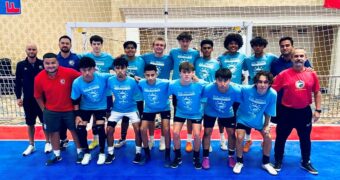



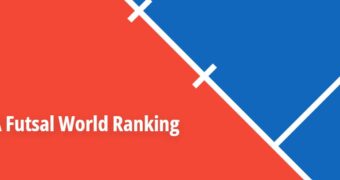




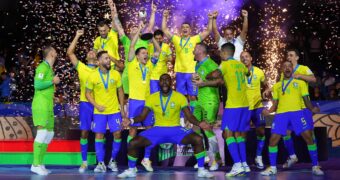



![Validate my RSS feed [Valid RSS]](https://www.futsalfocus.net/wp-content/uploads/2020/01/valid-rss-rogers.png)

